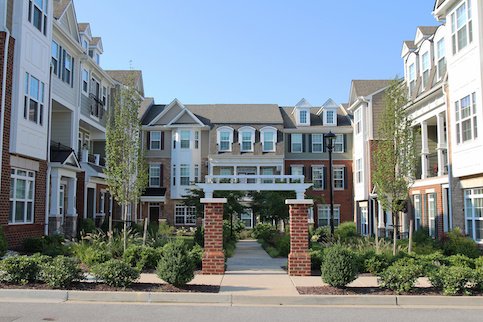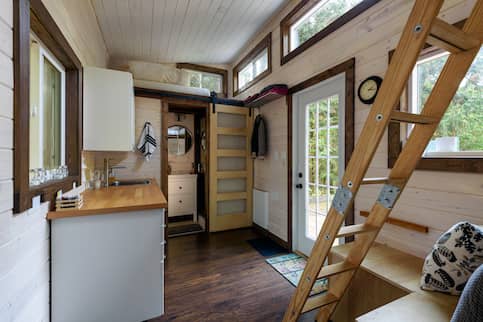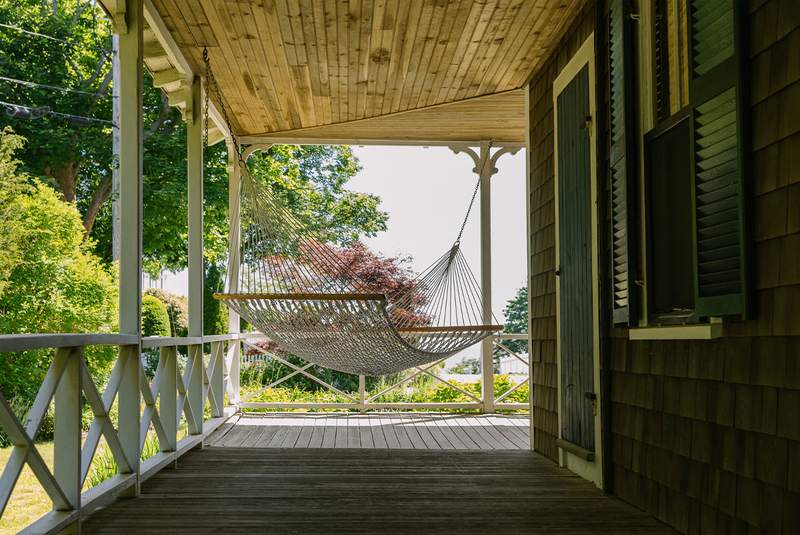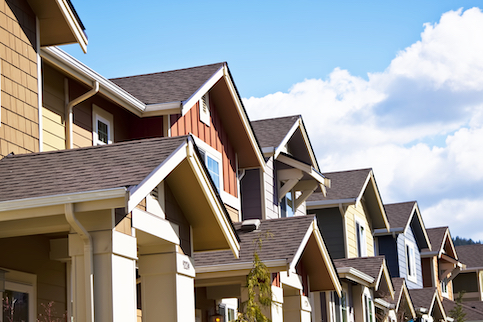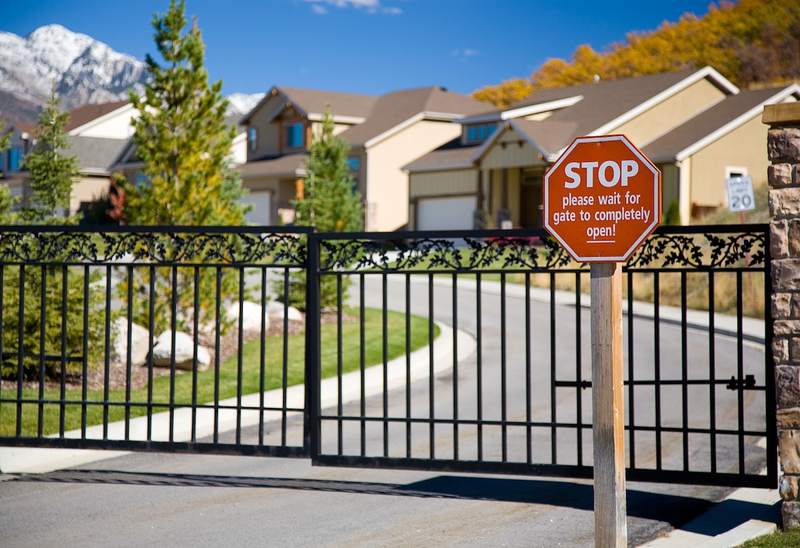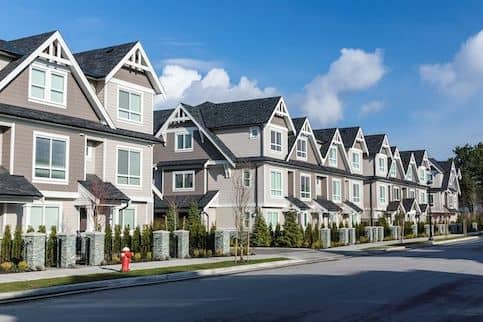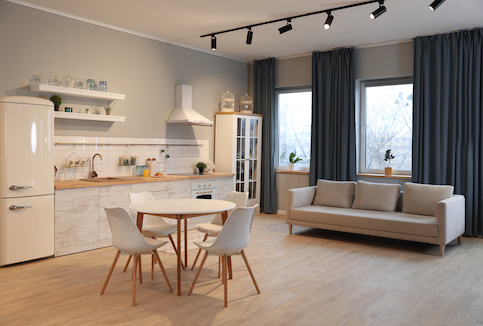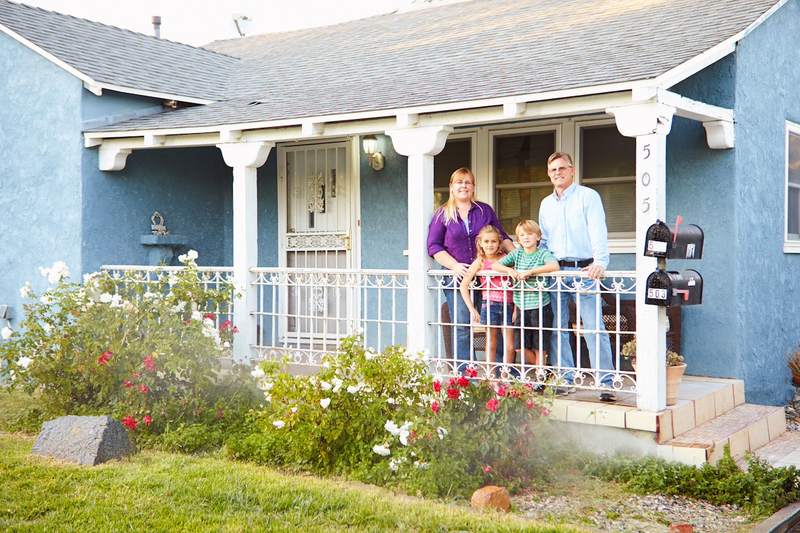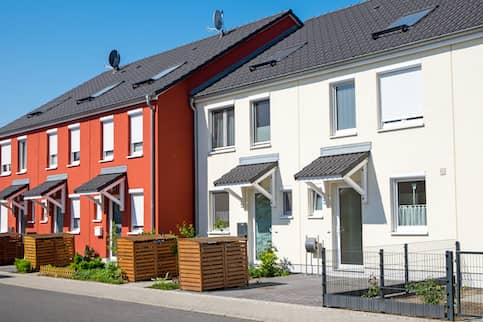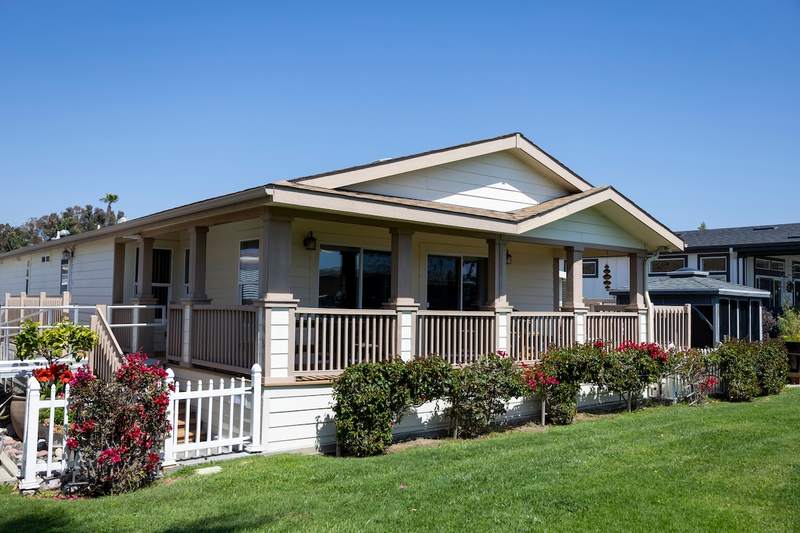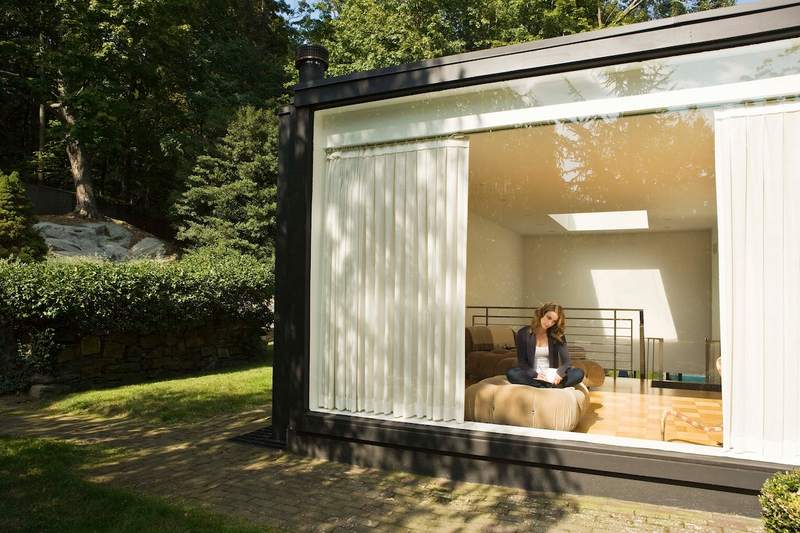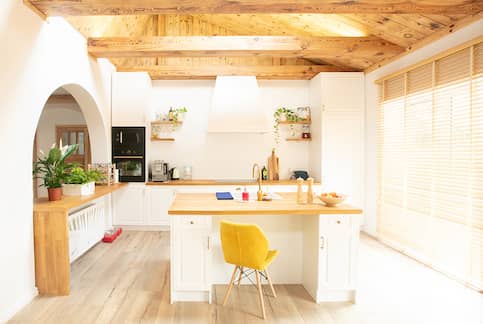Buying a home is often the largest investment a person will make. For buyers looking at different types of homes, the allure of a detached single-family home pales in comparison to the economic sense of attached homes – and for good reason. What duplexes and townhouses have in common is that they’re both distinct, private-entrance units that share a common wall or floor with another dwelling.
Both are excellent options for first-time home buyers who aren’t quite financially prepared for a larger detached home but who are ready to make their first real estate investment.
What’s A Duplex?
A duplex is a single structure with a single owner, featuring two residences (either side-by-side or upstairs and downstairs) with private, separate entrances. Each unit has its own amenities, including kitchens, bathrooms and living spaces, providing a sense of privacy similar to a single-family home.
What’s Your Goal?
Buy A Home
Discover mortgage options that fit your unique financial needs.

Refinance
Refinance your mortgage to have more money for what matters.
Tap Into Equity
Use your home’s equity and unlock cash to achieve your goals.
What’s A Townhouse?
A townhouse features several dwellings that share walls. Each unit is individually owned with its own entrances. Townhomes have a multilevel design, where they’re tall and narrow with multiple floors. They’re often called “row houses” or “row homes” because they’re built in rows.
Townhomes typically have shared amenities among residents, such as landscaping, parking areas and recreational facilities, such as a gym or pool). These shared areas are usually maintained by a homeowners association.
Ready To Become A Homeowner?
Get matched with a lender that can help you find the right mortgage.
What Are The Differences Between A Townhouse And A Duplex?
There are some key differences between a duplex and a townhouse. It’s important to understand the nuances of both types of homes to determine which is compatible with your lifestyle. Let’s take a look at some of these differences.
Rental Income
Buying a duplex allows you to purchase two units in one fell swoop, meaning you can rent out one while you live in the other. Plus, you can pay off your mortgage faster by leveraging that rental income. When applying for a multifamily home mortgage, you can leverage the anticipated future rental income based on the estimated market rent.
Townhouses, on the other hand, are single-occupancy units. Unless you’re purchasing a townhouse exclusively to rent it out, you won’t benefit from a renter’s monthly payments.
Privacy
Attached homes don’t offer the same level of privacy as detached homes. True to its namesake, an attached home shares structural elements with a neighbor. With occupants on the other side of the shared wall, soundproofing the units may be the key to maintaining neighborly relationships.
Most townhouses share two walls with a neighbor on either side, whereas duplex residents typically only share a single wall or floor/ceiling with one neighbor. That said, townhouse owners often have their own private yard space, while duplex dwellers often share common areas, including outdoor space.
In the lease agreement, duplex owners should clarify all rules and expectations around shared driveways, yards and ambient noise in order to help mitigate conflict.
Maintenance And HOA Fees
With both townhouses and duplexes, the property owner is typically responsible for maintaining the units for their tenants. In a duplex, that includes fulfilling landlord duties and maintaining shared outdoor spaces and landscaping.
Townhouses, which are often found in developed communities, typically require payment of monthly HOA fees. These additional costs can range from hundreds to thousands of dollars, depending on the area. HOA fees can cover a range of services, including:
- City services: Many of your basic utilities (trash collection, water and sewage) are often included in your monthly HOA fees, leaving you fewer bills to keep track of and more time to enjoy your home.
- Community amenities: Does your townhouse community have a pool and fitness center you can’t wait to use? Your HOA fee will cover maintenance costs for community infrastructure, as well as the salaries for any valet services, security guards or other offerings.
- Reserve funds: If the HOA doesn’t have enough of a reserve to cover an emergency cost (like clubhouse repairs), the board may vote to charge a special assessment, which could run you thousands of dollars. Many rules will include restrictions on the amount or number of times a special assessment can be charged in a year.
Take The First Step To Buying A Home
Find a lender that will work with your unique financial situation.
What Are The Pros And Cons Of Duplex Living?
Let’s weigh the advantages and disadvantages of buying a duplex.
Pros Of Buying A Duplex
Buying a duplex can come with these benefits:
- Location: Purchasing a duplex can be the most affordable way to move to a more desirable neighborhood or a better school district. Diversifying your income with a reliable stream of rental income can also be a worthwhile long-term investment if you’re in a sought-after location.
- Immediate ROI: While the upfront costs of investing in a duplex may be higher than purchasing a townhome, rental income can help you pay off your mortgage faster, providing an immediate return on investment in many cases.
- Extended family living: Investing in a duplex can allow you to live with your family. Whether you purchase a duplex and rent both units out to family members or choose to live in one unit and rent the other to a child or older parent, a duplex could be a sound investment for you and your extended family.
Cons Of Buying A Duplex
Unfortunately, you might experience these drawbacks with a duplex:
- Landlord responsibilities: Purchasing a duplex can mean you’re taking on landlord responsibilities, which can be a significant lifestyle change. As a landlord, you’ll need to be available for maintenance and repairs, comply with local laws for safe dwelling units and market the property to potential tenants.
- Privacy concerns: Privacy might be more of a concern with a duplex than a townhome because you often have to share outdoor spaces. To address this, it’s important to have open conversations with prospective renters about the expectations for shared living spaces.
- Neighbor compatibility: Before entering a legal agreement, you might want to vet the compatibility of your neighbor. Ask questions about expectations around social gatherings in common areas and quiet hours that align with your work schedule.
What Are The Pros And Cons Of Townhouse Living?
Let’s weigh the advantages and disadvantages of buying a townhouse.
Pros Of Buying A Townhouse
Getting a townhouse may give you the following benefits:
- Private outdoor space: When you buy a townhouse, you typically have your own private yard to enjoy. Unlike with duplexes, you have full ownership of the property, including any yard or garden space.
- Low maintenance: Townhomes typically have less exterior maintenance compared to detached homes. That’s because landscaping and common area upkeep are often maintained by the HOA.
- Community living: Townhouses can offer a sense of community to residents. They often have shared amenities like parks, pools and fitness centers, which can provide the opportunity to interact with neighbors in the townhouse complex.
Cons Of Buying A Townhouse
You might also run into the following drawbacks:
- HOA governance: While HOAs make it convenient to pay utilities and enjoy shared amenities, some individuals might not like the idea of being governed by one. HOAs can impose restrictions on property use and lifestyle choices.
- Renting restrictions: Townhouse owners may face restrictions on renting out their units if these limitations are outlined in the HOA agreement. If you’re allowed to convert your townhome into a rental or investment property, there could be mortgage and tax implications to deal with.
- Shared maintenance costs: Unlike duplexes, where maintenance costs are the homeowner’s responsibility, townhomes may require negotiation with neighbors over repair costs and lifestyle changes. For example, it can be tricky to ask a neighbor to use less cooking grease if your shared pipe keeps getting clogged.
The Bottom Line
Now that you know the differences between townhouses and duplex homes, you should have a better idea of which property type is most compatible with your lifestyle and financial goals. Understanding your budget and financing options are the next steps toward finding a new home that suits your needs.

Hanna Kielar
Hanna Kielar is a Staff Writer for Rocket Companies with a focus on personal finance, automotive and personal loans. She has a bachelor's degree in professional writing from Michigan State University.
